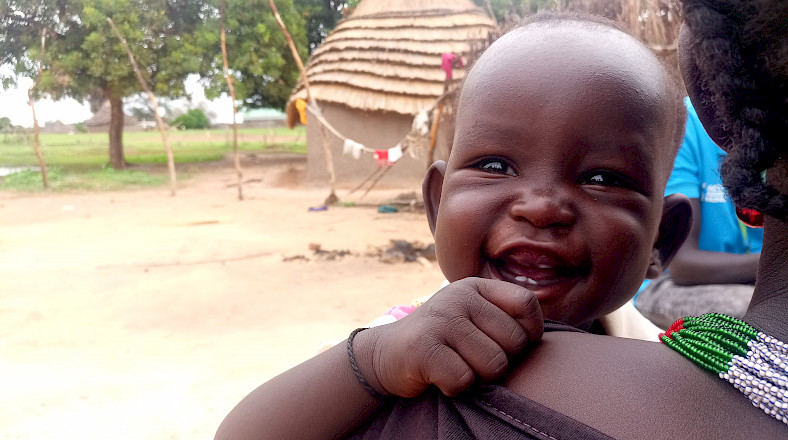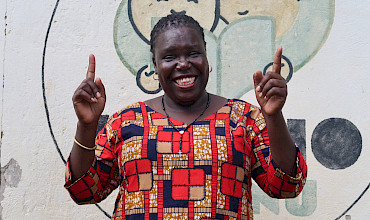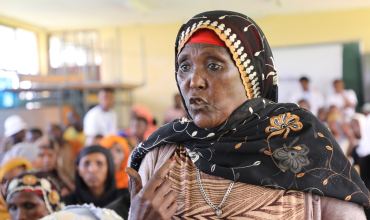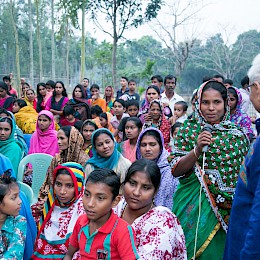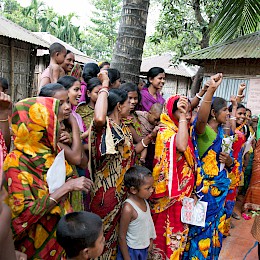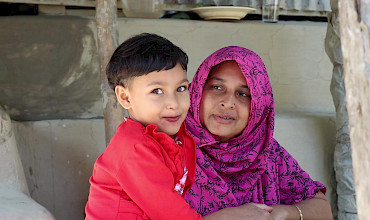
Last year Save the Children set the longest Christmas table of the Netherlands, virtually. More than 2,100 people took a seat at our table. Together they drew attention to the vital importance of healthy and nutritious food for children worldwide. The table talk was clear: we need to eradicate child hunger and malnutrition.
Today, on December 13th, we took our table global. Save the Children and the Right2Grow alliance invited parliamentarians from the Netherlands and our programme countries - Uganda, Burkina, South Sudan, Ethiopia, Bangladesh - to have a conversation on the crucial importance of healthy eating for children worldwide. During Covid-19, the global nutrition situation worsened rapidly. In some countries, there are literally no food reserves available. In times like these, it is more important than ever to bring people together - around physical or virtual tables - to advocate for food systems change.
Fostering cross-sectoral collaboration
Right2Grow aims to tackle siloed approaches and work together across sectors and countries. This dialogue deepened connections and collaborations between parliamentarians working on eradicating child hunger, because together we have the power to ensure that every child worldwide is well-nourished and able to reach their full potential. Ensuring healthy nutrition for all is cross-cutting and an important component in all policy areas as it is at the core of ensuring people’s livelihoods. This includes working together with the private sector to get all actors in the nutrition-chain involved in solving malnutrition. Ethiopian representatives advocated for support of the SDG2 funds and highlighted the importance of multisectoral approaches, particularly combining agriculture, water, energy, and education.
Thinking global, consuming local
More attention should be drawn to ensuring people consume locally sourced foods which can unleash potential to have more local production. This will not only lower the food prices but also strengthen local economies. In South Sudan, the situation is particularly difficult as the conflict is setting the whole country back.
Empowering communities through education
Our dialogue highlighted the importance of ensuring mothers have a good nutritional status and breastfeed their children. There is a strong correlation between nutrition and education. In Uganda, for example, half of the kids go to school with an empty stomach, which impedes their ability to learn. We have seen the positive impact of school feeding campaigns in these cases. In Burkina Faso, the president has committed to provide every schoolchild one balanced meal a day.
Besides closing the knowledge gap, we discussed the need for behavioral change. Training families on how to feed children, how to breastfeed properly and how to detect early stages of malnutrition is crucial. This includes a more holistic food literacy training, so we can ensure all children have a good nutritional status.
Putting local communities in the driver’s seat
Besides investing in preventing malnutrition, we need to empower local communities. They should be the ones involved in decision-making and the creation of policies. There is so much knowledge within these communities, they know best what they need, so they should have a full seat at the table – they should be in the driver’s seat.
We need to make food the center of gravity in our policy making – it should be like this for every systematic change and policy area as food is a cross cutting issue, says Dr. Meseret Zelalem.
Right2Grow and Save the Children stand for locally driven, community-led solutions that target barriers experienced by local actors. We aim to break down silos between actors and topics, reaching a good nutritional status and access to basic WASH for all.
Back to overview